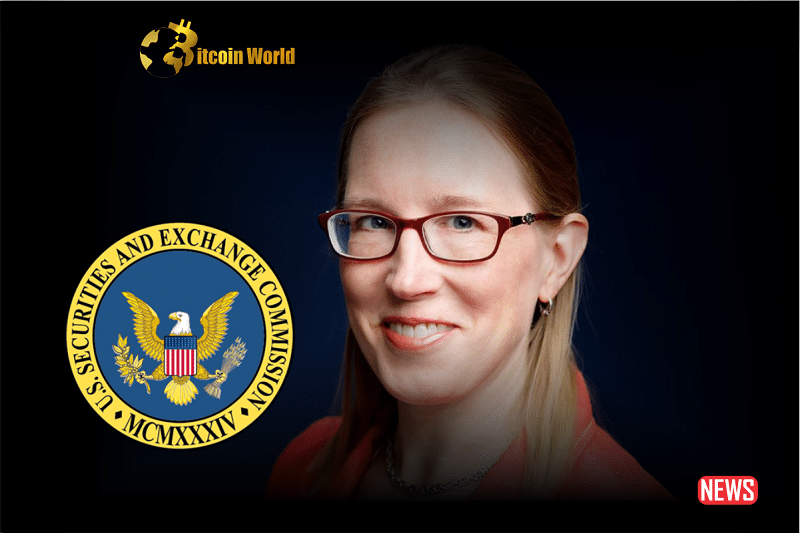Hester Pierce, the commissioner of the United States Securities and Exchange Commission (SEC), has voiced apprehensions regarding the recent SEC statement advising accounting firms against taking on non-audit work for crypto clients. Pierce questions whether this approach, aimed at enhancing transparency, might inadvertently stifle genuine efforts from crypto platforms. The SEC’s chief accountant, Paul Munter, defends the warning, expressing concerns about potential selective disclosures and a lack of transparency for investors. As the debate continues, auditors grapple with issues of confidentiality and their reputations in the cryptocurrency space.
Commissioner Pierce’s Concerns and the Transparency Debate:
In a tweet on July 28, Commissioner Pierce raised her concerns about the SEC’s stance on non-audit work for crypto clients. She questioned the wisdom of discouraging well-intentioned efforts to provide more transparency in the cryptocurrency industry. While the SEC aims to protect investors, Pierce is wary of hindering sincere initiatives from crypto platforms that seek to enhance openness.
SEC’s Chief Accountant’s Perspective:
Paul Munter, the SEC’s chief accountant, stands by the watchdog’s statement, arguing that non-audit arrangements may lack the rigor and comprehensiveness of a full financial statement audit. He fears that crypto firms might selectively disclose specific aspects of their businesses to accounting firms and present that information as a complete audit to clients, potentially misleading investors. Munter emphasizes the importance of providing reasonable assurance to investors through thorough financial audits.
Challenges for Accounting Firms and Auditors:
Munter’s recommendation for accounting firms to consider a “noisy withdrawal” and disassociate from clients in certain cases raises practical challenges. Auditors are bound by confidentiality, making it difficult to make public statements without compromising their professional responsibilities. Mike Shaub, an auditing and accounting ethics professor at Texas A&M University, echoed this concern in a tweet on July 29. He also pointed out the issue of some accounting firms aligning with cryptocurrency expertise to bolster their reputation but becoming unresponsive when problems arise.
As the crypto industry continues to evolve, striking the right balance between transparency and practicality remains a critical challenge for regulators, accounting firms, and auditors alike. The SEC’s cautionary stance aims to protect investors, but Commissioner Pierce’s reservations highlight the complexity of navigating the unique terrain of cryptocurrency operations and reporting.















